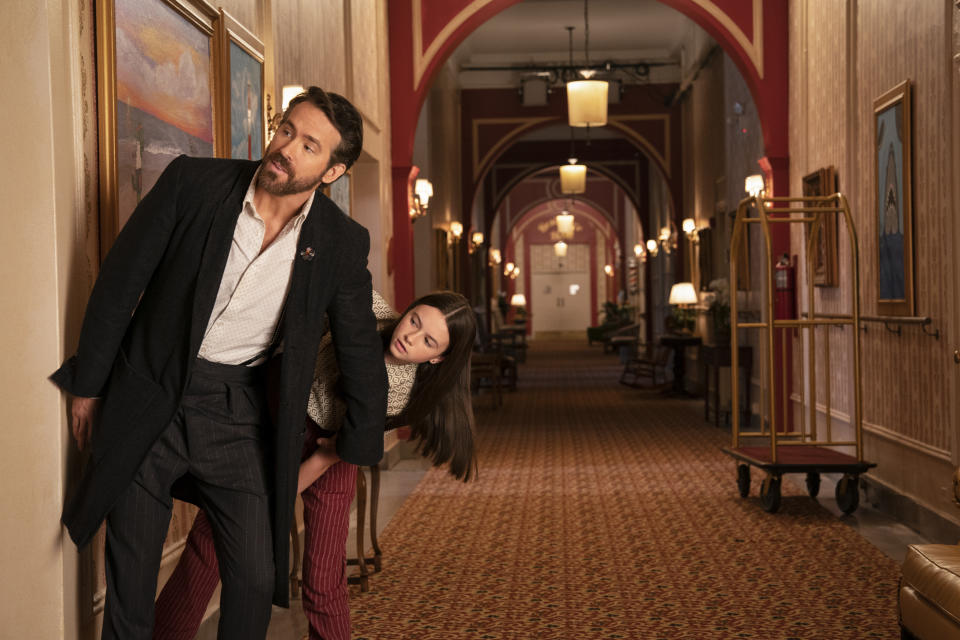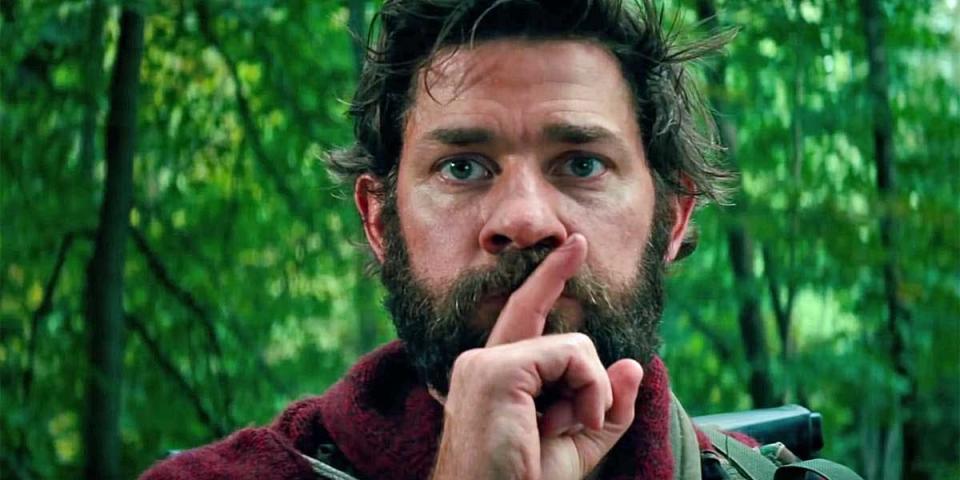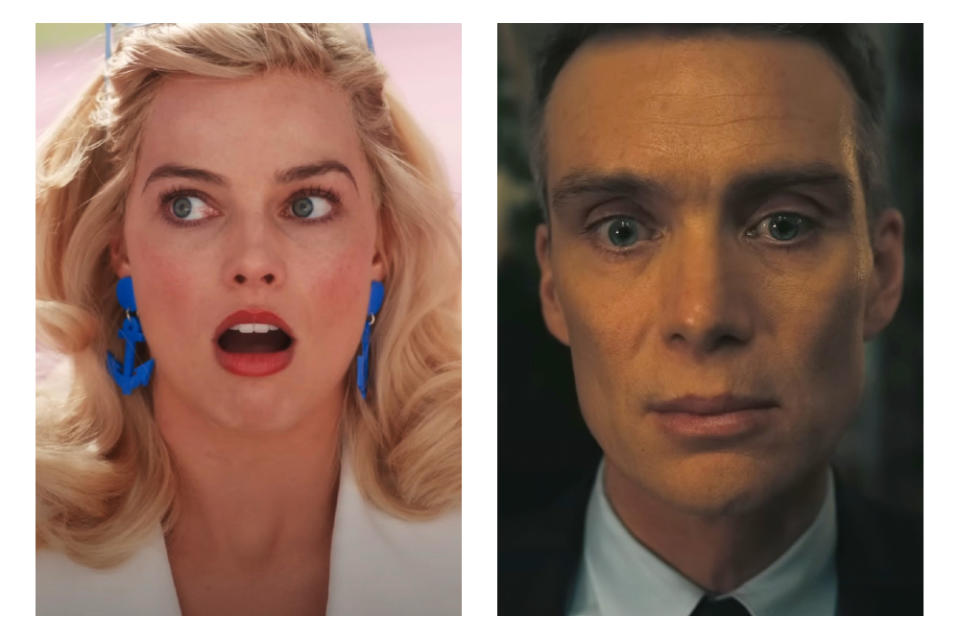‘IF’ Really Is an Imaginary Friend: The Original Film That Wants to Be a Summer Blockbuster

“Jaws” in 1975 is remembered as the movie that birthed the summer global blockbuster; its many children include “Star Wars,” Raiders of the Lost Ark,” “E.T.: The Extra-Terrestrial,” “Top Gun,” “Ghostbusters,” “Ghost,” “Twister,” “The Lion King,” “Independence Day,” “Speed,” and “Men in Black.” Today, that bloodline is threatened with extinction.
On the surface, that seems ridiculous — summer box office is still defined by blockbusters — but today that means sequels. It’s become exceedingly rare for studios to invest over $100 million in a summer movie with an original screenplay that’s not already part of a franchise. That’s what makes Paramount Pictures’ $110 million “IF” such an outlier.
More from IndieWire
Still, being that exception also hands writer-director John Krasinski a double-edged sword. Those original blockbusters — all released between 1975-1999 — ended up with domestic gross totals, in 2024 ticket price terms, of over $400 million. Consensus on opening weekend for “IF” has been around $40 million, though some recent projections have been lower.
After World War II, when drive-ins boomed and before air conditioning was standard, summer was a B-movie season. Seven Spielberg’s feature adaptation of Peter Benchley’s “Jaws” changed that concept forever— a shift that, not coincidentally, paralleled the change to same-day wide national releases backed by TV ads. It’s still the third biggest summer release ever.
Like “Jaws,” these summer blockbusters were original ideas but they weren’t complex. Like the killer shark terrorizing a sleep seaside village, they were based on “high concepts”: storm chasers confront killer tornadoes, aliens invade Washington, murdered husband warns his widow of danger. Add movie stars, dramatic tension, a little humor and the die was cast.
That’s where “IF” may fall short. Reviews have been mixed, citing a screenplay with magical moments that threaten to be overwhelmed by cluttered storytelling and erratic tone. And it doesn’t sound like a summer blockbuster: Ryan Reynolds (ahead of “Deadpool and Wolverine” in July) is second-billed to Cailey Fleming as a troubled girl who can see imaginary friends. The adult cast also includes Krasinski, Phoebe Waller-Bridge, Steve Carrell, and the late Louis Gossett Jr.
Then again, “E.T.” had no stars and was also about a similar girl and an oddball companion — but that was more than 40 years ago.

Krasinski’s inventive and original “A Quiet Place” franchise has grossed around $640 million worldwide to date, with a third installment to come. Paramount expanded its relationship with the actor-filmmaker and gave the rated-PG “IF” a prime May playdate (with Memorial Day the second weekend), positioning it as the first family film of the summer.
Success demands several weeks of strong play along with decent foreign results; it opened in France and Belgium last weekend to about half of “Kingdom of the Planet of the Apes.” Theaters want “IF” to be a success; they are desperate for a sustained run of hits and would like studios to take more risks on non-franchise projects. That’s even more essential after the disappointing results from “The Fall Guy,” which was not original in the same sense — the Ryan Gosling stunt man film was based on a 1970s TV series — but its practical impact for moviegoers was essentially the same.
Despite good reviews, Gosling’s momentum, strong marketing, and a great date, that $130 million film (before marketing) will struggle to get much above $150 million in worldwide gross.
Most highly anticipated summer films are franchise titles. But what helped push last year to its $4 billion domestic total was nearly $1 billion from the “Barbie”/”Oppenheimer” original combo.

They also were exceptions that prove the rule: The path to original films clicking is tricky. “Barbie” had the awareness of the iconic doll plus the credibility of Greta Gerwig. “Oppenheimer” had Christopher Nolan and the status of a must-see event, and even if its subject wasn’t box-office gold it at least provided a clear image of what to expect.
Both “IF” and “The Fall Guy” lacked those advantages. Again, a generation ago that didn’t seem to matter. Now it seems like a huge barrier.
What happened? In part, the success of those original high-concept movies also sowed the seeds of its destruction. They spawned multiple sequels, reducing the need for original titles. This created the model for developing production schedules around titles that were elastic enough to create offshoots, like comic book universes.
The greater need to appeal to a more homogenous worldwide audience also reinforces aesthetic conservatism. It’s worth noting that 45 percent of the “E.T.” global box office came from international territories; for “Barbie” box office, international represented 56 percent.
No one or two titles are make or break — but eyes are on the the risks and expense of “The Fall Guy” and “IF.” They will play an important role in whether similar films get backing in the future.
Best of IndieWire
The Best LGBTQ Movies and TV Shows Streaming on Netflix Right Now
Guillermo del Toro's Favorite Movies: 54 Films the Director Wants You to See
Nicolas Winding Refn's Favorite Films: 37 Movies the Director Wants You to See
Sign up for Indiewire's Newsletter. For the latest news, follow us on Facebook, Twitter, and Instagram.

